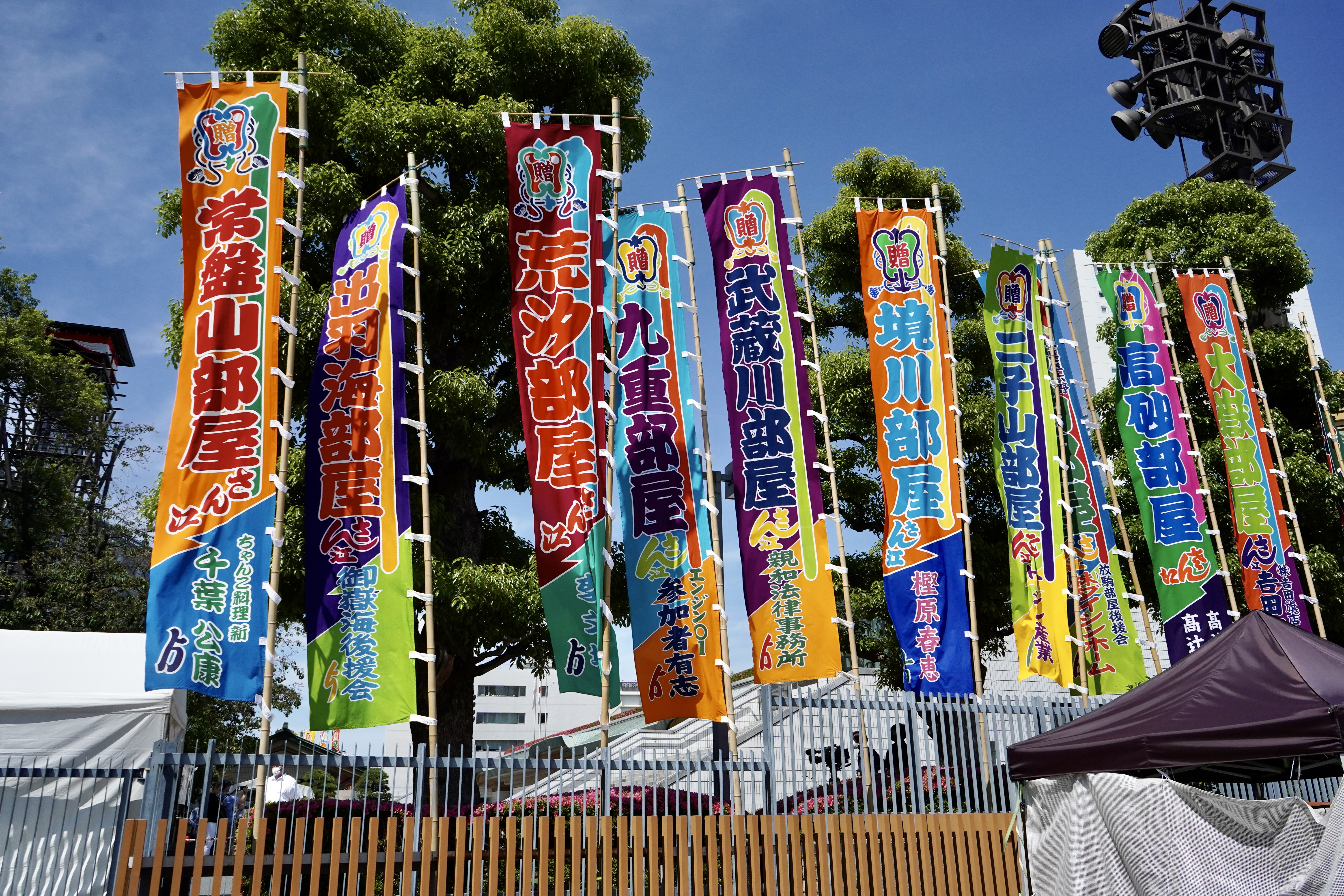The Ryōgoku Kokugikan National Sumo Arena
Walking Distance? 5 minutes from the LUJ Building.
The earliest mention of a sumo wrestling bout in Japanese history is over two thousand years ago, in 23 BCE, and won by Nomi no Sukune, the “ancestor of all sumo.” For the next thousand years, sumo bouts were fought to the death. Over time, the sport served as hand-to-hand combat for samurai during the Middle Ages before establishing more professional organizations during the early Edo period (1603 – 1868). Ryōgoku is the current de facto capital of sumo in Japan. LUJ students on walks in or around the train station will no doubt see countless chankonabe restaurants serving a delicious Japanese stew designed to help sumo wrestlers gain or maintain their weight, or, inside the station, see large paintings of past sumo champions or life-size handprint sculptures showing their hand size.
But the centerpiece of sumo culture is the Kokugikan. Built in 1985, the arena hosts the three major sumo tournaments. During these tournaments, which occur in January, May and September, LUJ students just might momentarily share a train station escalator with a professional sumo wrestler, or pass by a crowd of admiring sumo fans taking pictures and applauding a yokozuna, or the highest rank for a sumo wrestler.
As these tournaments go on, just outside the front entrance, passersby will glimpse long, colorful lines of banners, nobori, on bamboo poles waving in the wind. Normally, the upper kanji on each flag will be of a particular sumo wrestler in the tournament, while the smaller kanji at the bottom will be one of the sumo wrestler’s sponsors. These nobori are originally handcrafted each year. Tickets for these three popular tournaments start as low as 2,500-yen, for General Admission, and run as high as 20,000-yen for ringside. To learn more about sumo wrestling before attending an event, check out NHK World Japan’s short tutorial series.
The Kokugikan also hosts various professional boxing and wrestling events throughout the year.
